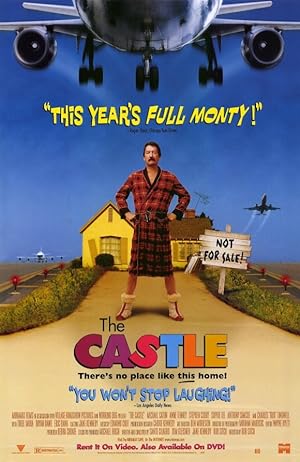The Castle hit my radar after I saw Kenny, and I’m glad that it did. The Castle is an Australian film about a family fighting to not lose their home because of eminent domain. The family is close knit, blissfully unaware of their socioeconomic place in the world and exercise extreme gratefulness, love and enthusiasm in ordinary circumstances. The Castle acknowledges that their lack of sophistication initially makes it seem like they will exhibit the worst stereotypes of the working class, but the intentions behind their social gaffes are good. They embrace their immigrant neighbors and family members. The family is not perfect, but when one family member goes astray, there is a sense that the real punishment is being apart, and the agony of separation is enough to motivate that person to do better in the future.
I normally do not like films that use a court battle to vindicate the main character’s way of life, but The Castle uses the trope effectively because it is a crucial part of the plot. The patriarch’s bonhomie, verbal clumsiness and family pride unwittingly become his secret weapons in this battle as the David and Goliath odds even out. Ultimately The Castle not only vindicates this average Australian family as they fight for themselves and their neighbors. The Castle also vindicates the rule of law, though it is largely inaccessible to the working class.
I’m not made of stone, people. I teared up during The Castle and was touched by its values. The Castle asserts the possibility of an ordinary, egalitarian utopia in the midst of a fallen world where the odds, money and ability are not on the right side. The Castle is a must see, but you may need subtitles for the Australian accents.
Stay In The Know
Join my mailing list to get updates about recent reviews, upcoming speaking engagements, and film news.





